Amid legal threats, warnings of pending confiscations circulating on the internet, and a raid on a supplier conducted by federal agents, the President and CEO of Rare Breed Triggers, Lawrence DeMonico, is formally stepping away from his day-to-day business activities to fight the next round in RBT’s ongoing bout with the ATF.
RBT, the maker of the FRT-15 forced reset trigger, has been at the center of a standoff with the ATF (Bureau of Alcohol, Tobacco, Firearms, and Explosives) since late last summer. Forced reset triggers like the FRT-15 can dramatically increase the rate of fire for a semi-automatic rifle. Therefore, the ATF has alleged that the trigger meets the legal definition of a “machinegun” and is illegal.
“Through it all, what has kept me going is a love of country and conviction. I am 100% confident the FRT-15 is a perfectly legal semi-automatic trigger as the law is written, and I’m now laser focused on doing whatever’s necessary to prove this fact in a court of law.”
— Lawrence DeMonico, president and CEO of Rare Breed Triggers
According to DeMonico, recent fireworks in the courtroom and brazen actions taken by the federal government have clearly demonstrated that the situation has taken a new turn – and it’s game on. For RBT, the game has been going on for a good while, and DeMonico is heading to the District of Columbia to get in the ears of prominent movers and shakers.
“Unfortunately, there is a portion of the firearms industry that is afraid to stand up to the harassment and outright tyranny of the ATF,” DeMonico told Free Range American. “That isn’t me. It’s not who I am. Who I am is a combat veteran with a combined 20 years of service during the Global War on Terror.”
How We Got Here
If you’re just tuning in to this drama, you may want to refer to our coverage from earlier in the week to get up to speed on the controversy surrounding forced reset triggers, and specifically, the FRT-15. Here’s a quick recap:
The ATF has alleged that the FRT-15 meets the statutory definition of a “machinegun” as defined by the National Firearms Act (NFA). On Jan.26, 2021, federal agents from the ATF’s Tampa field office hand-delivered a cease and desist request to RBT owner Kevin C. Maxwell, Esq. The letter demanded that RBT immediately halt production of the FRT-15, hand over inventory, and submit a plan for dealing with products that had already been sold.
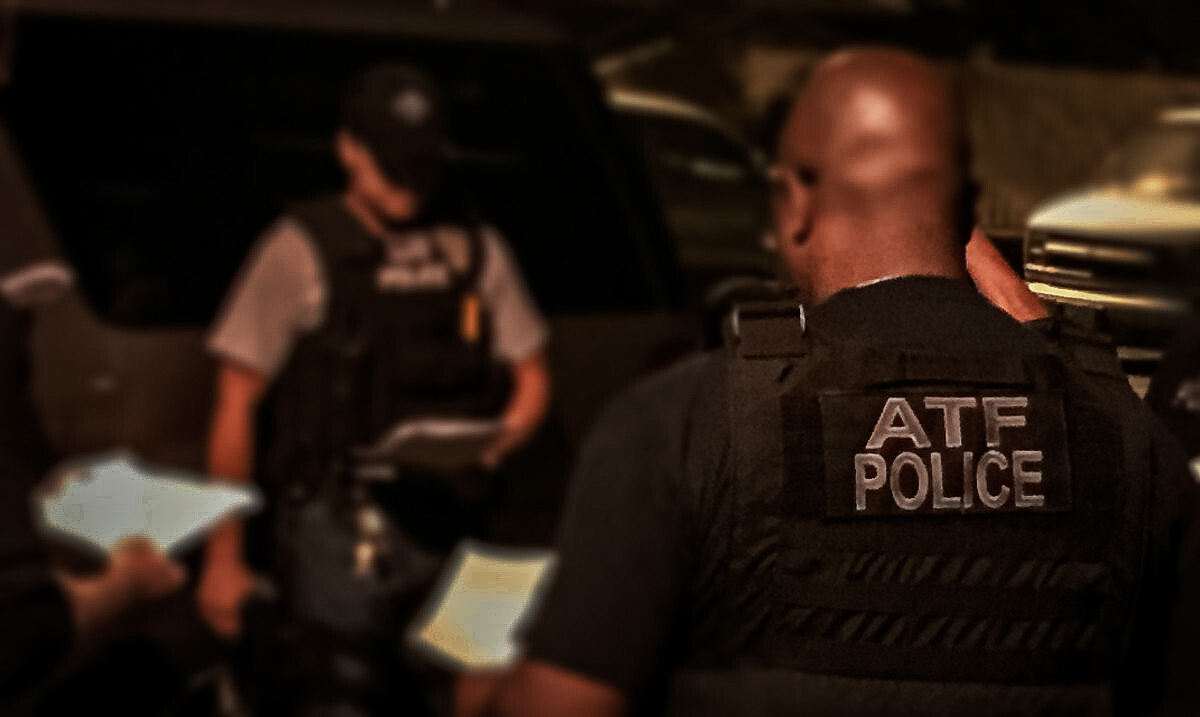
RBT’s rebuttal to the demands included detailed expert testimony demonstrating that the FRT-15 trigger does not “fire more than one shot by a single function of the trigger” (the NFA definition of a machine gun). RBT stated it would not comply with the request without a detailed explanation of how the ATF came to its conclusion. Soon after, RBT filed a federal lawsuit against the ATF and the U.S. Attorney General (Rare Breed Triggers, LLC v. Garland) in the 11th Circuit Court.
Latest Courtroom Developments Regarding FRT Devices
A few days ago, DeMonico posted a video on numerous social media platforms sharing some startling new background information on his company’s case against the government.
During court proceedings several months ago, DeMonico’s legal team learned that, before serving RBT the initial cease and desist request, the ATF had already taken steps to close the administrative record for its case.
In other words, even before agents served the request, the ATF had already blocked RBT from introducing any evidence into the administrative record. At the same time, the agency reopened the administrative record numerous times to make its own additions. RBT was never allowed the same opportunity.
“We had mountains of evidence and expert testimony to prove the FRT is not a machine gun,” said DeMonico, “[The ATF] did not want the judge to see any of it. Realizing that we were being railroaded, the judge allowed us the opportunity to amend our initial complaint in order to submit all of our evidence into the record, which […] we attempted to do. The ATF still refused us that opportunity.
“RBT also submitted the evidentiary materials to the court, but the government filed a Motion in Limine to prevent us from presenting expert witnesses and evidence to the court.”
The judge presiding over the case, Carlos E. Mendoza, assumed the ATF had complied with his instructions to allow RBT to add its evidentiary content to the administrative record, so he granted the ATF’s motion. That motion dramatically limited the scope of the subsequent hearing, but RBT’s legal counsel took a risk and tried to present expert witness testimony anyway, which was halted.
Upon learning the ATF had again refused to open the administrative record, DeMonico said the judge became livid and turned his wrath on the DOJ attorney.
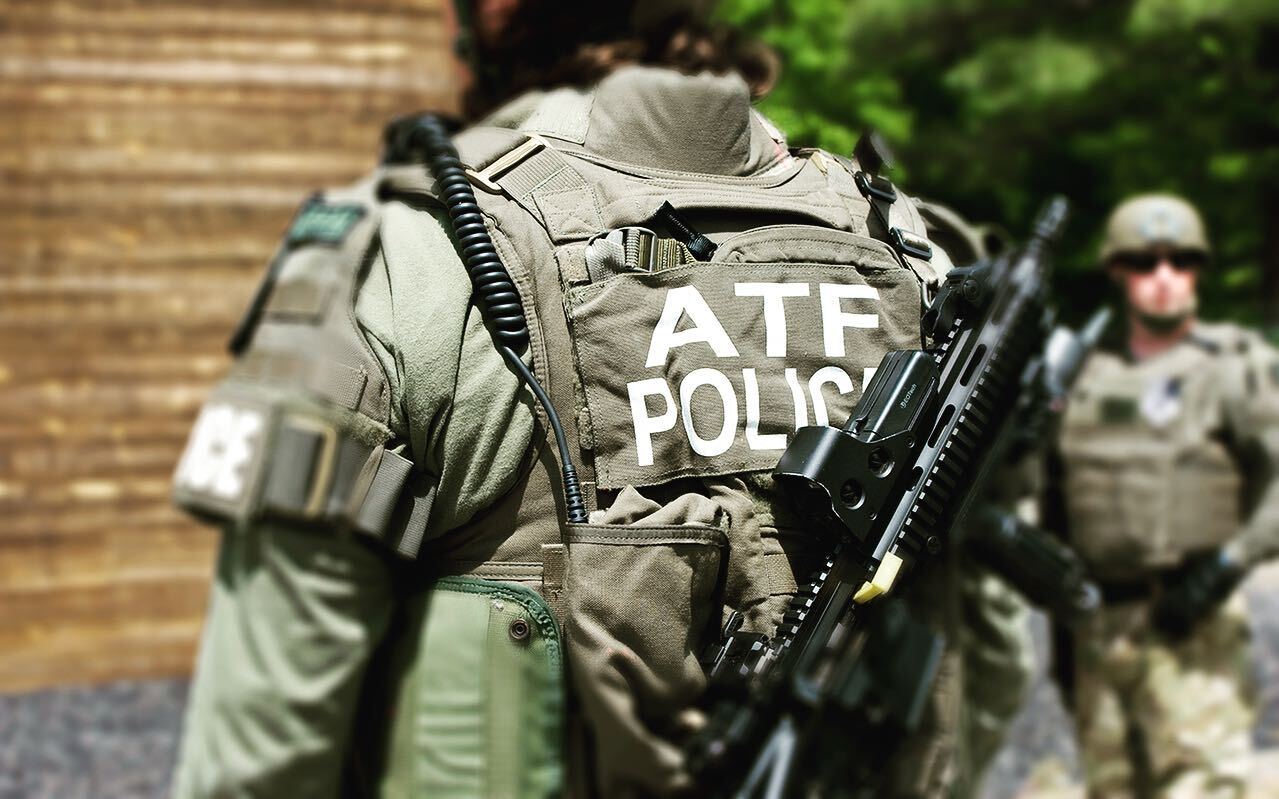
“This is a tortious interference claim and isn’t subject to the administrative law rules that the ATF tried to play last time.” ATF/Facebook
“I kid you not,” said DeMonico. “It was like a scene out of a movie. I saw fire in his eyes, and he looked directly at the U.S. Attorney for the DOJ and asked if this was true. The DOJ attorney informed the judge that it was true – that the administrative record was closed, and they had not allowed us to submit anything to it. The judge knew we had been railroaded, and he was pissed. I mean, it was apparent he was pissed.”
Mendoza then asked RBT if it would like the case remanded to the ATF, where the FRT-15 could be reevaluated and reconsidered from scratch. Of course, the answer from RBT was an emphatic “yes.” However, after a recess, the DOJ attorney informed the judge that the ATF was “unwilling” to voluntarily take back the case.
RBT was instructed by the judge to submit a motion to the court to formally request the case be tossed back to the ATF. However, while that motion was being prepared, the court found a clerical error in an administrative document, and, on Oct. 28, 2021, the judge quietly dismissed the case.
“[We plan to make] many of the same arguments that we did in the last case, but we’re also suing for the intentional misclassification of our product. This is a tortious interference claim and isn’t subject to the administrative law rules that the ATF tried to play last time.”
— Lawrence DeMonico
“In my opinion,” continued DeMonico, “[…] the judge knew we were right and that we were going to succeed. But he also didn’t want anything to do with the case. So, he looked for, and found, any possible reason to boot the case.”
The ATF’s ‘Open Letter’ to FFLs
DeMonico also made reference to the ATF’s March 22 communique to FFL holders in his video – an “open letter to all federal firearms licensees – which has fanned the flames in this battle and given him all the more reason to head to D.C.
As reported by Free Range American, the letter was incredibly vague, informing FFLs that “some” FRTs are now considered machine guns under federal law and, therefore, illegal to possess or sell under National Firearms Act (NFA) and Gun Control Act (GCA) regulations. Of course, the glaring omission here is the agency’s failure to specify which ones are illegal.
While the hazy nature of the letter is strange enough, even more bizarre is the way the ATF directly contradicted itself when referring to the definition of a “machinegun.” The first reference correctly described the statutory definition:
Any weapon which shoots, is designed to shoot, or can be readily restored to shoot, automatically more than one shot, without manual reloading, by a single function of the trigger.
However, in the very next paragraph, the agency wrote:
ATF’s position is that any FRT that allows a firearm to automatically expel more than one shot with a single, continuous pull of the trigger is a “machinegun ….”
And that’s not the only thing that’s off about the letter. At best, the ATF goofed up big time. At worst, the agency just tried to rewrite or expand the law without following due process.
ATF Executes Search Warrant, Seized Property at FRT-15 Utah Supplier
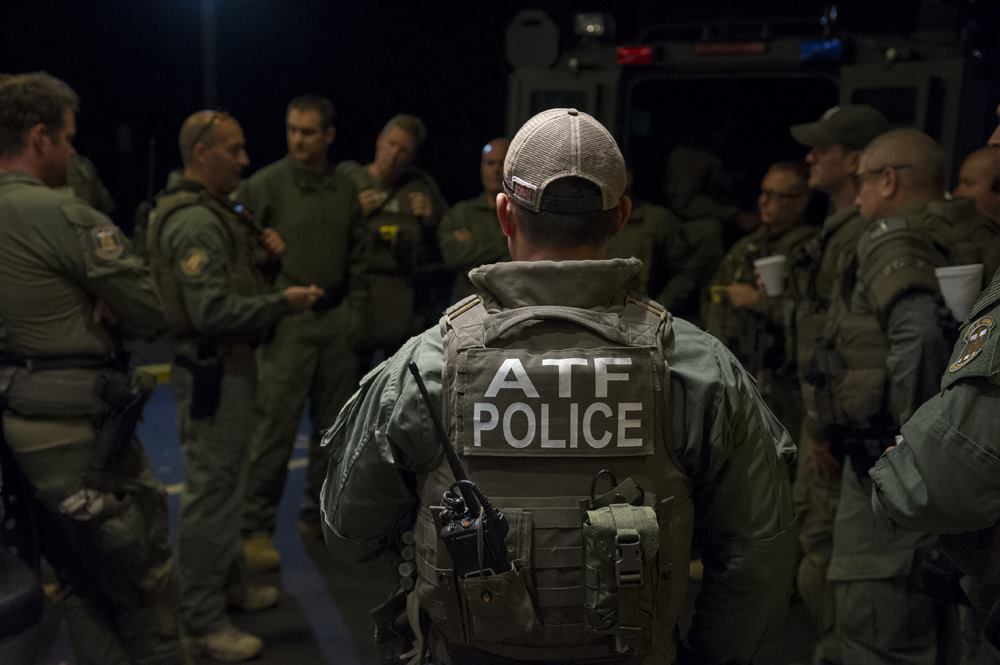
Finally, DeMonico revealed some additional disturbing details concerning one of RBT’s manufacturing partners. This partner was also the recipient of an ATF cease and desist request (dated Jan. 12, 2021). It demanded the business stop all production of the FRT-15 and turn over all product on-hand to the ATF. It also stated the business would be notified why the trigger was illegal “at a later time,” he said.
The vendor rebutted the request and provided detailed documentation, supported by high-speed and slow-motion videos, demonstrating exactly how the FRT-15 functions and why it is not a machine gun as presently defined by federal law. Furthermore, the vendor indicated it would not comply with the cease and desist request until the ATF explained how it concluded otherwise.
“The ATF didn’t bother responding […],” reported DeMonico. “Instead, [the morning of Saturday, March 26], they rolled up to this vendor’s business with guns drawn and raided their facility.”
He added that agents evacuated all personnel, blocked re-entry, and seized unknown inventory.
An ATF spokesperson would only confirm federal agents “executed a court-ordered search warrant in the 1400 N block of 200 W in Logan, Utah,” on March 26. Aside from sharing that no one was taken into custody, the ATF provided no additional details.
However, a trusted source in Logan, with first-hand knowledge of the events, confirmed to Free Range American that the raid took place at 3rd Gen Machine — a CNC machine shop and Federal Firearms License holder — located in the same address block cited by the ATF. Our source was advised by his attorney to withhold further details.
FRA has also independently verified that 3rd Gen is indeed one of the vendors that manufacture the FRT-15 trigger for RBT.
The Next Move for Rare Breed Triggers
The recent dismissal of RBT’s federal lawsuit is certainly a setback. However, the battle is not over. DeMonico is stepping back from his day-to-day business duties to focus exclusively on a new federal lawsuit that will soon be filed in North Dakota, where RBT is now located. He is also planning to hit the circuit in Washington D.C. and meet with members of Congress, including the 2nd Amendment Caucus.
“[We plan to make] many of the same arguments that we did in the last case,” said DeMonico, “but we’re also suing for the intentional misclassification of our product. This is a tortious interference claim and isn’t subject to the administrative law rules that the ATF tried to play last time.”
In the meantime, RBT has picked up valuable support from the National Association for Gun Rights (NAGR). The NAGR has offered to help connect DeMonico and his team with politicians and the pro-firearms lobby in Washington. It will also provide administrative guidance to RBT’s legal counsel as needed.
As an extension of this support, the NAGR has set up a dedicated website for RBT that will be used to raise awareness, collect names, and automatically fire off letters to lawmakers. Concerned citizens are strongly encouraged to complete the form on this page as soon as possible.
While the NAGR is the first firearms advocacy group to sign on with RBT, DeMonico hopes it will not be the last. He is open to and actively seeking assistance from other firearms advocacy groups as well.
“Between my active duty service as well as my time as a private military contractor, I’ve spent five years of my life with my feet physically planted on the ground in Iraq and Afghanistan,” DeMonico said.
“I’ve been shot, blown up, had my skull fractured, had two discs replaced in my neck, and both of my hips fused to my spine. I know pain, and I know adversity. Through it all, what has kept me going is a love of country and conviction. I refuse to back down because of that conviction now.
“I am 100% confident the FRT-15 is a perfectly legal semi-automatic trigger as the law is written, and I’m now laser-focused on doing whatever’s necessary to prove this fact in a court of law.”
READ NEXT – The ATF’s Renewed War on Forced Reset Triggers

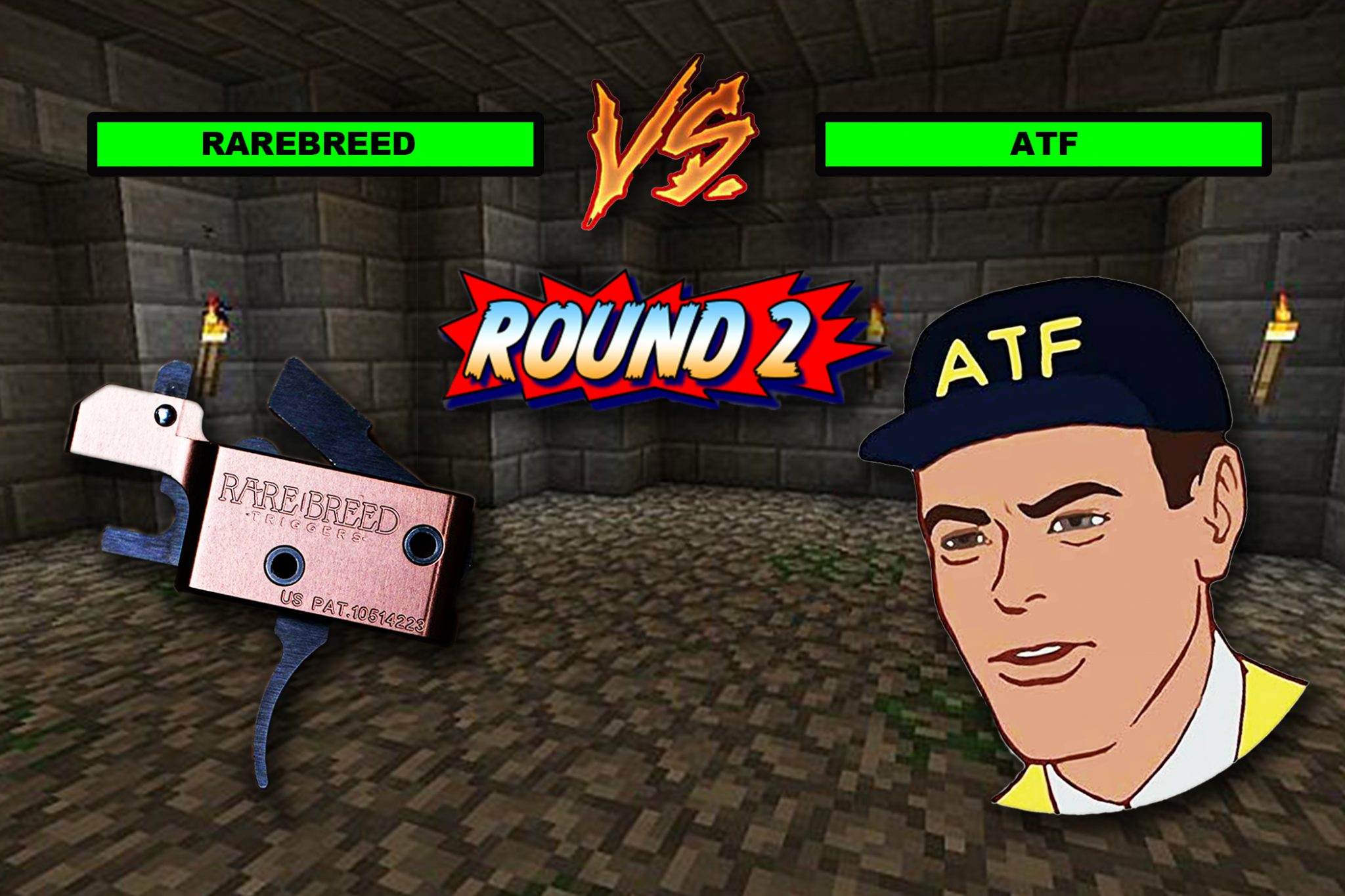

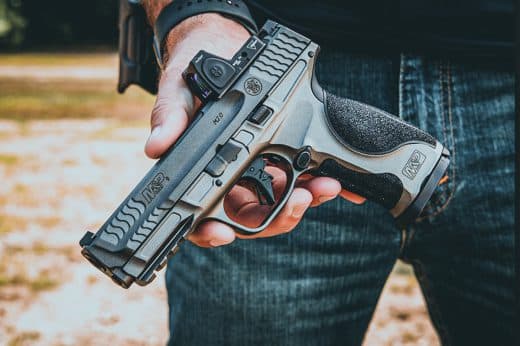

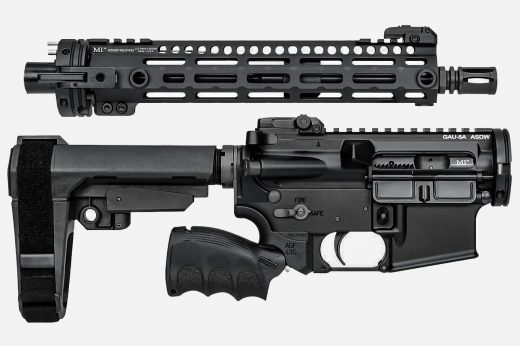


Comments